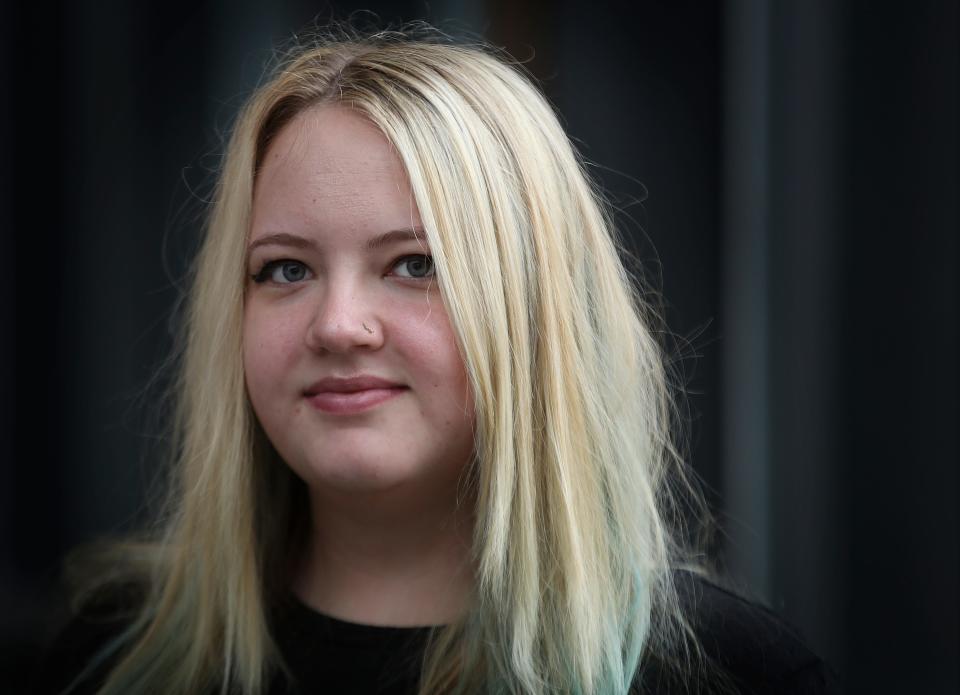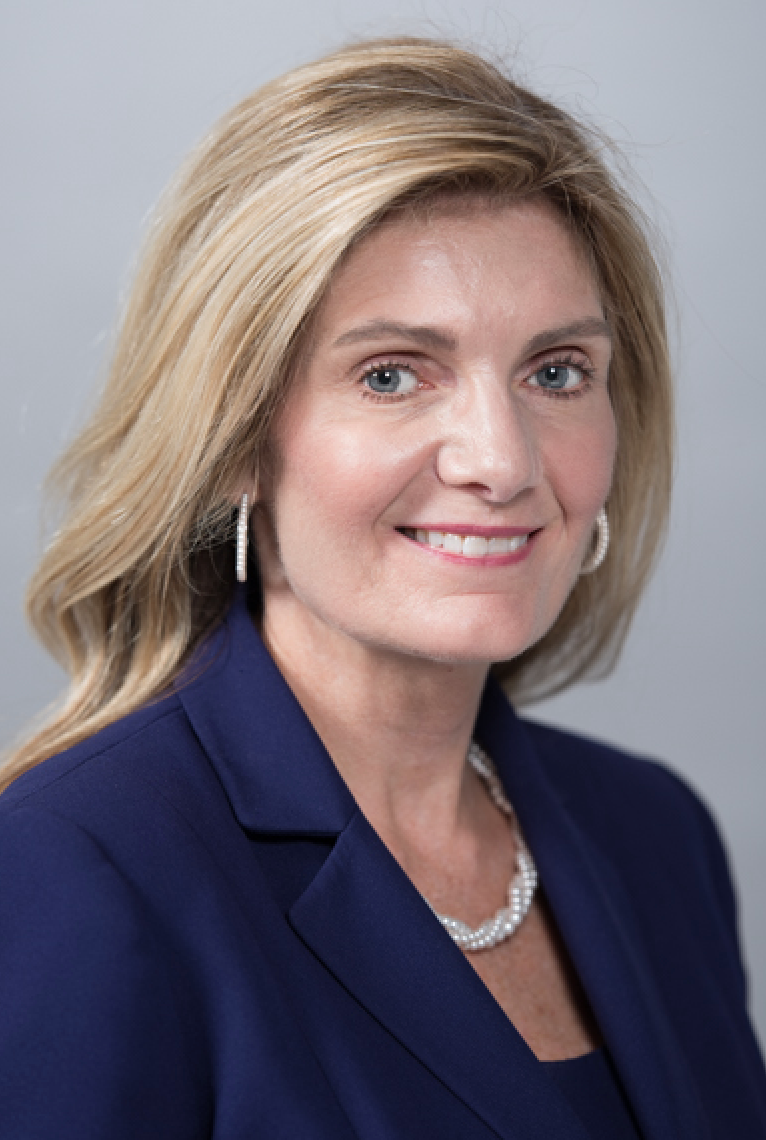Broad plan to expand aid for abused and neglected children advances in Kentucky Senate

- Oops!Something went wrong.Please try again later.
An ambitious measure to broaden oversight of child abuse and neglect, expand rights of foster children, better serve victims and try to keep families intact won unanimous approval Wednesday from a Senate committee amid praise from lawmakers.
"I am a proud co-sponsor of this bill," said Dr. Ralph Alvarado, a Winchester Republican, pediatrician and chairman of the Senate Health and Welfare Committee. "I would argue this is probably the most important bill we pass this year."
Sen. Julie Raque Adams, R-Louisville and sponsor of Senate Bill 8, said it contains an emergency clause which would make it effective immediately upon final passage.
Adams said Kentucky's persistently high national standings in its rate of child abuse and neglect mean the state must not delay in taking more steps to address it.
"Child welfare belongs to all of us, in every district across the commonwealth," Adams said in a statement after the hearing. "This is a first step to clean up and expand our statutes, get our regulations into conformity with statute and change current policy to change the lives of our abused and neglected kids."
Kentucky currently ranks fifth among states in its rate of child abuse and neglect cases for the federal 2020 fiscal year, according to the most recent annual Child Maltreatment report released Jan. 19 by the U.S. Department Health and Human Services.
It has ranked first for the previous three years, Adams noted.
"Now it's time to make a change," Adams said. "Our rates of child abuse and neglect continue to cause great concern."
Kentucky reported 16.7 cases of child abuse or neglect per 1,000 children for the fiscal year Oct. 1, 2019 through Sept. 20, 2020, a decrease from the previous year's rate of 20 cases per 1,000.
Overall, the federal report noted a decrease in reports from states, with the largest decline coming from April through September 2020 after the pandemic closed many schools and isolated children from adults, such as teachers, likely to report suspected abuse and neglect
The report collects standardized data from all states, and while it cautions state rates may be affected by varying procedures, advocates in Kentucky repeatedly have expressed concern about the state's consistently high rankings
"We've just got to start getting better at this," said Sen. David Givens, R-Greensburg.
Among the measures in Adams' 49-page bill:
Creates a new state Child Abuse and Neglect Prevention Board by broadening the scope of the a board within the attorney general's office that now is limited to child sexual abuse and exploitation. The new board would meet quarterly and report to the governor and General Assembly on ways to prevent and reduce child abuse, neglect and exploitation.
Changes the law to allow prevention services such as counseling for families at "moderate risk" of having children removed because of abuse or neglect. Current law limits such aid to families at "imminent risk."
"Rather than just blow the family up, we're going to try to keep the family together," Adams said.
Requires more Medicaid funding for physical exams and other services at the state's 15 Children's Advocacy Centers, the primary sites for children who have suffered sexual and other abuse. Medicaid currently pays $538 for an exam and other services that cost about $2,100 per child, said Pam Darnall, CEO of Family & Children's Place, the advocacy center in Louisville.
"These rates have not increased in 20 years," Darnall said of the current Medicaid payments.
Changes the definition of abuse or neglect to make it clear that poverty alone is not a reason for such a finding. Rather, a finding of abuse or neglect would be allowed when parents or other caregivers are financially able to provide for a child but fail to do so.
Expands rights for foster children to allow them access to their confidential state child protection case records when they turn 18 and also, to allow them more time to remain in foster care past age 18 if they so choose for financial and other support.
Tamara Vest, a former foster child who now coordinates an independent living program at Murray State University for foster youth, spoke in favor of allowing youths to choose to remain in or return to foster care up to age 20.
The law now allows children to remain in foster care up to age 21 as long as they make the decision before turning 19.
Vest said she was in foster care for nine years and thought she was ready to exit at 18.
"I was that hard-headed 18-year-old who had been through years of foster care and had my life controlled and was ready to be in control of my own life and my own decisions," Vest said. "I learned very quickly it is so hard when you age out of foster care without those supports and those connections."

Vest said that on her 19th birthday, she requested to return to the foster system but was told she had missed the deadline.
Representatives of children's advocacy centers say SB 8 would provide a much-needed financial boost to their work conducting medical evaluations of children for possible sexual abuse.
"I feel like Senate Bill 8 allows me to do my job without worrying about how it will be funded," said Dr. Jacqueline Sugarman, a pediatrician who evaluates children for the Children's Advocacy Center of the Bluegrass in Lexington.
The Child Victim's Trust Fund, which collect money from the sale of "I Care About Kids" license plates and donations through a check-off box on state tax returns, pays an additional $100 toward the cost of each exam.
But Darnall, with the Louisville program, said the centers established by the legislature more than 20 years ago have to try to make up the difference of about $1,500 by fundraising or seeking grants.

Funding from Medicaid under SB 8 would "fully cover the cost of these exams," said Darnall, whose center evaluates about 7,500 children a year.
The bill now goes to the Senate where Adams said she hopes it could be called for a vote by next week.
Several senators on the committee expressed their full support for it but added Kentucky needs to keep working on the underlying problems of addiction, mental illness and poverty that affect child abuse and neglect.
"This is just one of the issues we have got to deal with as a state as well as substance abuse, poverty, all the other issues that define us as a state when the reality of it is we have so much to offer in this commonwealth," said Sen. Danny Carroll, R-Paducah. "We have got to deal with these basic issues before we do anything else."
Reach Deborah Yetter at dyetter@courier-journal.com. Find her on Twitter at @d_yetter. Support strong local journalism by subscribing today: www.courier-journal.com/subscribe.
This article originally appeared on Louisville Courier Journal: Measure to expand aid to abused and neglected Kentucky kids advances
